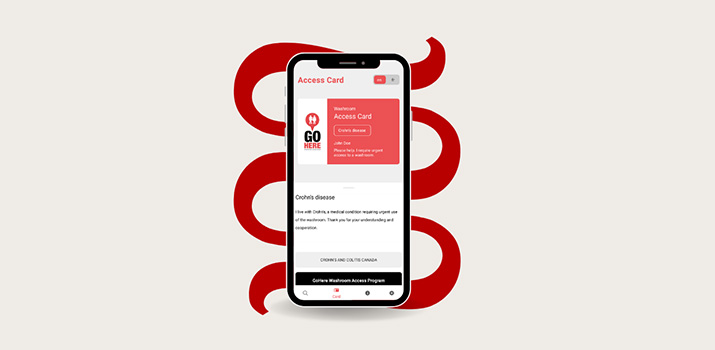November is Crohn’s and Colitis Awareness Month
Let’s help people find nearby, available washrooms quickly

November is Crohn’s and Colitis Awareness Month, a time to support those living with Crohn’s or colitis and to inform Canadians about the realities of these diseases.
One of those realities for those living with Crohn’s or colitis is a frequent and urgent need for bowel movements – from 5 to 20 times a day. Anxiety about accidents is real. Finding a washroom quickly is a top priority. Many prefer to stay at home, or close to home, if they cannot be certain of finding a washroom outside of home.
The GoHere® free app is the solution that makes it easier for people with Crohn's or colitis to find a washroom when they need one, helping them manage their symptoms and lead active, productive and fulfilling lives. It is available for iPhone and Android devices.
Find out more about all the things we are doing this November on our news story about Crohn’s and Colitis Awareness Month.